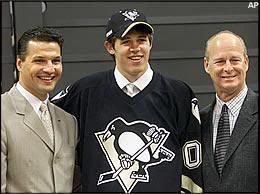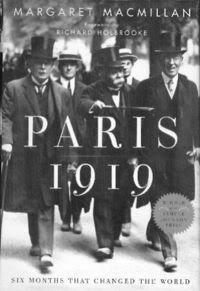 No, I didn’t get killed in Buffalo, although my buddy Karl did his damnedest to get us in trouble with the Amerkans (Way to go, Jamocha!).
No, I didn’t get killed in Buffalo, although my buddy Karl did his damnedest to get us in trouble with the Amerkans (Way to go, Jamocha!).I’m finding blogging regularly very challenging when big things are happening to me and the sports world takes a back seat. I wonder how the better amateur bloggers do it, like Neate over at Out of Left Field?
Anyway, the toughest thing to do when you’ve been away from your blog for an extended period is to figure out where to get started again. I suppose I’ll go with a story that really caught my attention this morning: the Evgeni Malkin court ruling.
Yesterday, a U.S. district court ruled in favour of the NHL against Russian hockey clubs that wanted to bar some of its players from playing in NHL games until a decision is made over compensation for those players. I imagine most NHL fans welcomed the news with a shrug of the shoulders and a “way to stick it to the Russians!”.

As is my nature, this turn of events has me wondering, especially on the heels of the Matsuzaka sweepstakes in baseball. The two cases are similar at their core: a bigger league covets a superstar in the making from a smaller league. This happens all the time in soccer, where one team will compensate the other with a “transfer fee”, usually in the millions of dollars (depending on the player, of course). This appears to be modus operandi for the Boston Red Sox, who have offered $51 million to the Seibu Lions should they succeed in signing their star pitcher.
Meanwhile, in what seems like another world, the Pittsburgh Penguins practically smuggled Evgeni Malkin away from Metallurg Magnitogorsk without compensation. This is a player that was under contract to the Russian club, and the Penguins were able to sign him to a contract and have him play.
 How can two situations that seem so similar at their core produce such differing results? Imagine this scenario: have Sidney Crosby signed by, say, Spartak Moscow. For whatever reason, Crosby decides this is the right career move and leaves the Penguins for Russia while the Pens get nothing in return – like the NHL wouldn’t go all the way to the Supreme Court over something like this.
How can two situations that seem so similar at their core produce such differing results? Imagine this scenario: have Sidney Crosby signed by, say, Spartak Moscow. For whatever reason, Crosby decides this is the right career move and leaves the Penguins for Russia while the Pens get nothing in return – like the NHL wouldn’t go all the way to the Supreme Court over something like this.It’s been mentioned that it’s the Russian Federation’s fault for not signing an agreement with the NHL, which would have capped the amount of compensation given to Russian clubs at $200,000 per player. Can we blame them? 200 grand when the Penguins will make millions off this deal? There’s a certain hypocrisy from the NHL wanting to globalize the game, yet when rival leagues try to hold on to their talent (or get fair compensation for being pillaged), the NHL tries to kick them back into the backwater. It’s only a matter of time before the Russian league will be able to hold

its own against the NHL. Bettman and company need to embrace the fact that they’re succeeding in making the game a global success, and everything that comes with it, including successful leagues in foreign countries. It’s not because a bunch of NHL execs get together in a room once a year and decide who gets what (the NHL draft) that the rest of the world have to abide by these terms, as if we were back at Versailles in 1919.
I’ll say it again: North American sports leagues need to look at soccer for guidance on how to go global. The systems are mostly in place when it comes to soccer, and all the NHL needs to do is model themselves after them. Baseball seems to be getting the message, and the NHL, as usual, is lagging behind.
1 comments:
While I agree with you that the cases seem similar, the biggest difference in the two cases is that Malkin found a major loophole in Russian contractual laws. Check out Bill Meltzer's post on HockeyBuzz.com for a description of the major difference in Russian contracts.
Is it ethical for Malkin to resign his contract? Absolutely not. But is it legal? Surprisingly, yes. However, it opens a huge can of worms that neither the NHL nor the Russian Hockey Federation want to have to deal with. Hopefully Fetisov can get his new Russian hockey league in place, so they too can have a solid, reputable league.
Post a Comment